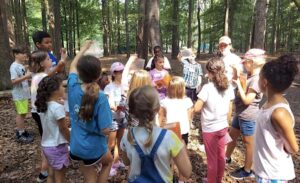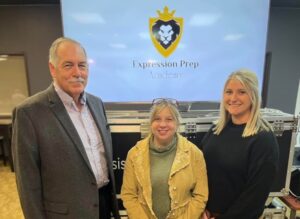Church-based microschools are ‘sprouting everywhere’
One of the signs of “education entrepreneurship” surging throughout the country since the COVID-19 pandemic is church-based microschools – and they’re “sprouting everywhere.”
So says…

One of the signs of “education entrepreneurship” surging throughout the country since the COVID-19 pandemic is church-based microschools – and they’re “sprouting everywhere.”
So says Kerry McDonald, senior education fellow at the Foundation for Economic Education (FEE).
“Both faith-based and secular microschools are on the rise across the U.S. as parents seek alternatives to an assigned district school,” McDonald explained to The Lion.
The host of the weekly LiberatED podcast that focuses on alternative learning environments commented on the small faith-oriented schools offering personalized instruction at an affordable cost.
“Faith-based microschools and hybrid homeschools have been particularly popular over the past three years,” she noted, adding parents have been exploring “alternatives to an assigned district school.”
McDonald detailed what draws families to these education settings.
“More families want education options that are better aligned with their needs and values, and that focus on an individualized approach to learning,” she said. “Many of these options have been around for years, but since 2020, parents have become more aware of, and open to, different approaches to teaching and learning.”
The author of Unschooled: Raising Curious, Well-Educated Children Outside the Conventional Classroom, McDonald interviewed Pastor Josh Robertson, founder and CEO of Black Pastors United for Education, during a podcast episode in September.
Robertson shared what he experienced when the pandemic was underway and members of his congregation asked him for help.
“It started with us receiving, you know, like 40 to 50 calls a day from parents, once the kids were released from in-person school, and now they’re doing this online school,” recalled Robertson, senior pastor of The Rock Church of Harrisburg, Pennsylvania. “We started just getting an onslaught of phone calls from parents asking us, ‘Hey, is there anything that you can do?’”
Without knowing exactly which steps to take, the pastor said his church decided to hire one of its members to oversee the school work of about six or seven students – a move that turned out to be successful. Later, they established an after-school program, which also proved to be popular.
Ultimately, Robertson was asked if families could use the church’s space to expand their learning program. Along the way, his team had been connected to the Center for Education Reform in Washington, D.C.
“We, you know, put our minds together and we kind of built the plane while we were flying it, and that fall we started with nine children,” Robertson shared about the events of the 2020-2021 school year. “We called it the Rock City Learning Center … and at the end of that year we had 30 students.”
Students who previously struggled were becoming successful in the church’s learning center, the pastor observed.
“Ten out of the 30 finished above a 90; 12 finished above an 80; six above a 70%; two above a 60%; and every student that on average came to our learning center four days out of the week finished the year on the honor roll,” Robertson detailed. “So, we knew then that we were on to something.”
Enrollment grew, and now his church’s learning center even offers services for local virtual charter school students who need more focused attention.
“It’s a full day program, 8 a.m. to 3 p.m., Monday through Friday,” he explained.
In another podcast episode, McDonald interviewed Jenna Wertheimer, director of Grace Preparatory Academy, a Christ-centered hybrid homeschool program in the Boston area, which also launched during the pandemic.
“She has seen Grace Prep’s enrollment surge from just over 20 students in 2020 to more than 70 students today, as parents search for more personalized learning models that match their preferences,” said McDonald, who, in May, released a case study of similar examples of education entrepreneurship across the United States.
In her recent email newsletter dedicated to faith-focused microschools, McDonald also chronicled the story of former Kansas City public school teacher Matt Barnard and his wife, who joined with others to launch Refine KC, a full-time, faith-based microschool that leases space in a local church.
“We focus on personalized and Christ-centered learning,” Barnard said during McDonald’s visit to his K-12 learning center in September. “You’re made a certain way and we just have to figure that out.”
Refine KC opened in August 2022 with 15 students and now operates with 40 students and six teachers at a cost of $6,000 per year. Barnard and his team now hope to replicate their microschool in other locations.
McDonald told The Lion the trend toward more “decentralized education options will not only continue, but accelerate.”
“Entrepreneurial parents and teachers everywhere are creating individualized, accessible, and highly creative learning environments in big and small communities across the US,” she observed in her newsletter. “If there’s not one near you, build it!”



